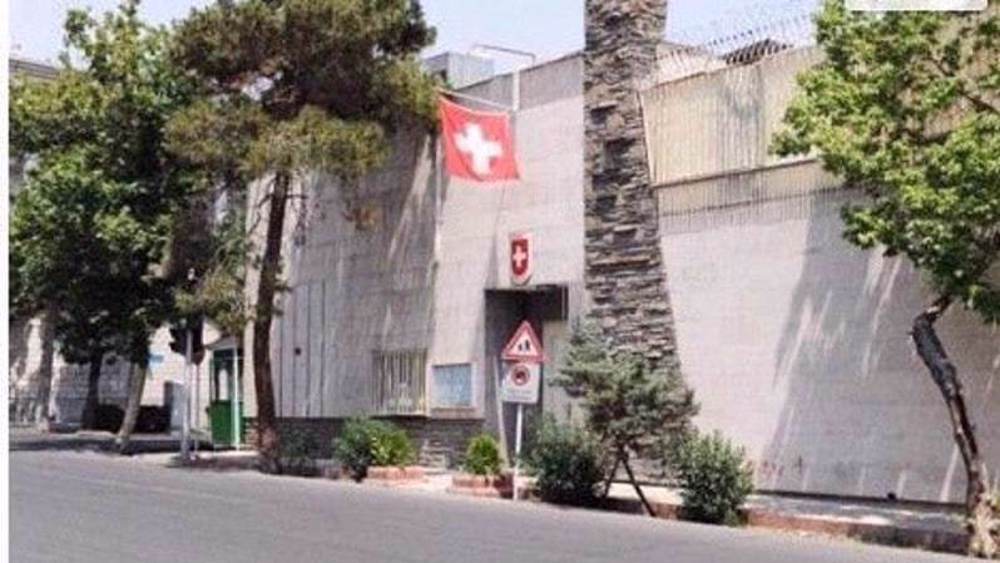Leaving EU doesn’t mean leaving Europe, Johnson says, but doesn’t it?
Boris Johnson, the new British foreign secretary, says there is a “massive difference” between leaving the European Union and the country’s relations with Europe.
The pro-Brexit politician, who was appointed to the cabinet office by Prime Minister Theresa May earlier, said Thursday that he expected ties with Europe to be “intensified” after an exit from the bloc.
“And on Europe, clearly we have to give effect to the will of people in the referendum, but that does not mean in any sense, leaving Europe,” said the former mayor of London. “There is a massive difference between leaving the EU and our relations with Europe, which if anything I think are going to be intensified and built up at an intergovernmental level.”
At the time May was running for the Conservative leadership in an attempt to win the country’s premiership, she promised that "Brexit means Brexit."

Johnson, whose appointment has infuriated some European officials among others, said he had spoken with US Secretary of State John Kerry as well as his French counterpart, Jean-Marc Ayrault.
He also spoke of “reshaping Britain’s global profile and identity as a global player,” saying, “we now have the opportunity to achieve that.”
European officials, however, “made little effort on Thursday to hide their disgust,” as the Guardian put it in its report, covering the development.
Ayrault called Johnson a “liar” while German Foreign Minister Frank-Walter Steinmeier branded him as “outrageous.”
France
In an interview on French radio, Ayrault made comments that ran counter to what Johnson said about “deepening Anglo-French cooperation,” highlighted in a “charming note [sent by Ayrault] just a couple of hours ago.”
“I’ve got no worries at all about Boris Johnson. But you know very well what his style and method are. During the campaign, you know he told a lot of lies to the British people and now it is him who has his back against the wall. He is up against it to defend his country and also so that the relationship with Europe is clear,” said the French top diplomat, calling Brexit “a sign of the British political crisis that has come out of the referendum vote.”
French President François Hollande also called on Britain to exit the EU immediately.
“The sooner Mrs. May actions Britain’s exit from the EU, the better the future relationship between the EU and the UK will be,” he said in a TV appearance Thursday.
He added that he used “all the necessary courtesy” to get the message across.
Germany
The German foreign minister also criticized Johnson’s appointment, referring to his decision to play cricket the day after the June 25 referendum, in which about 52 percent of British voters opted to leave the EU, while roughly 48 percent voted to stay in the union.

“People [in the UK] are experiencing a rude awakening after irresponsible politicians first lured the country into Brexit and then, once the decision was made, decided to bolt from responsibility, and instead go off and play cricket,” he said in the northeastern German city of Greifswald. “To be honest, I find this outrageous. It’s not just bitter for Great Britain. It’s also bitter for the EU.”
Simone Peter, the co-leader of the German Green party, also censured the new foreign secretary, likening his appointment to the new job to “trusting the cat to keep the cream.”
EU
Frans Timmermans, the European commission vice-president, also rapped the new government’s “hatred and bigotry.”
“The problem with hatred however is that, once used casually as an instrument in political discourse, it can prove very effective in reproducing itself. Of course, this loss of control doesn’t happen when one is simply debating big topics with the chaps at the Oxford Union… But in the real world of a referendum on the future of your country the kind of arguments used have consequences,” Timmermans wrote in a blog post.
According to Martin Schulz, the European parliament chief, Johnson’s appointment was based on solving internal party issues while it would continue a “dangerously vicious cycle.”
“It is important to have someone in place who allows for calm and serene negotiations,” Schulz said. “These are not the qualities we have seen from Boris Johnson so far.”
IRGC deploying ‘new weaponry’ during underway Ground Force drills
VIDEO | Press TV's news headlines
Another key hospital taken out of service by Israel in north Gaza
Iran's top medical association urges ‘safe’ release of Gaza hospital’s director
Hezbollah chief: Gen. Soleimani was a leader on strategic, intellectual levels
Euro-Med warns Dr. Abu Safiya’s life in great danger due to torture
MP: Israel violating ceasefire agreement with Hezbollah to make up for defeats
From Sayyed Hassan Nasrallah to Hind Rajab, biggest newsmakers of 2024










 This makes it easy to access the Press TV website
This makes it easy to access the Press TV website